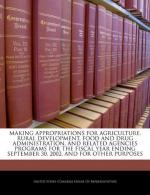|
This section contains 3,161 words (approx. 11 pages at 300 words per page) |

|
Because foods and drugs are intimately involved with the quality of life, their purity and safety have been of deep concern to many citizens and the governmental agencies dedicated to human welfare. Throughout the world the purpose of food and drug agencies is to certify that foods are safe and drugs effective. Consequently these agencies have as one of their chief goals the prevention of adulteration—debasing foods or drugs by diluting them with less valuable ingredients or adding substances to make the food or drug appear to be what it is not. Adulteration has ethical consequences; for example, the dilution of a cancer drug may hasten rather than hinder death. Corrupt companies can use scientific knowledge and chemical techniques to thwart detection of their adulterated products, forcing food and drug agencies to develop advanced techniques to ferret out fraudulent drugs and...
|
This section contains 3,161 words (approx. 11 pages at 300 words per page) |

|


